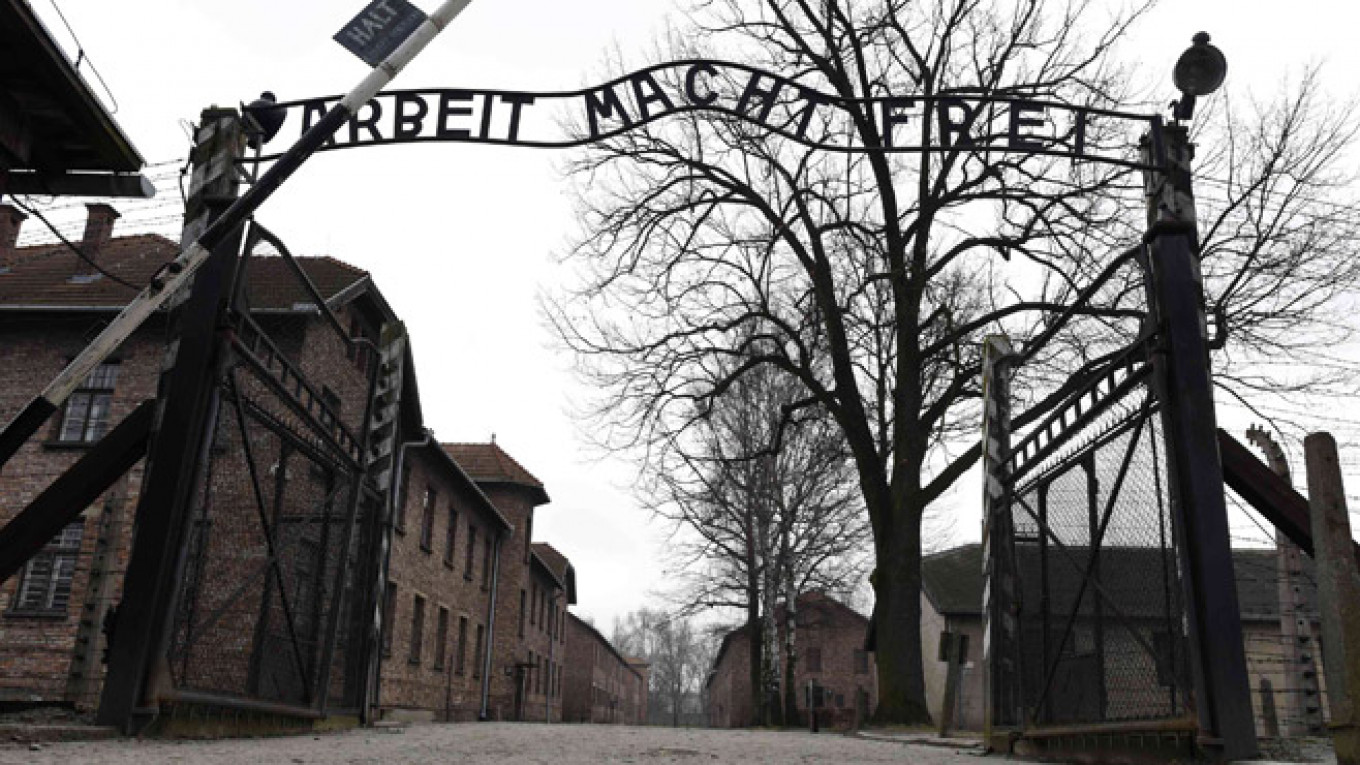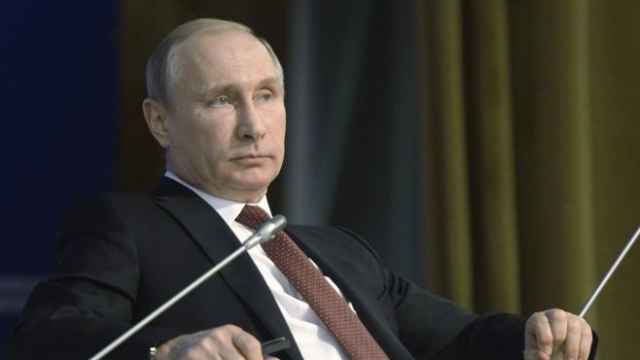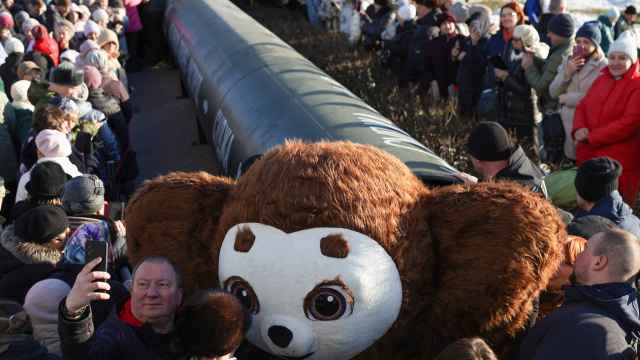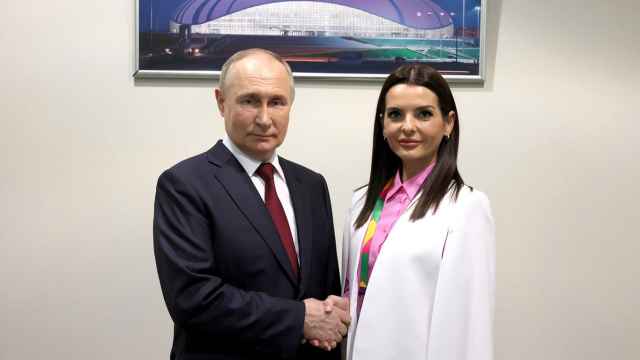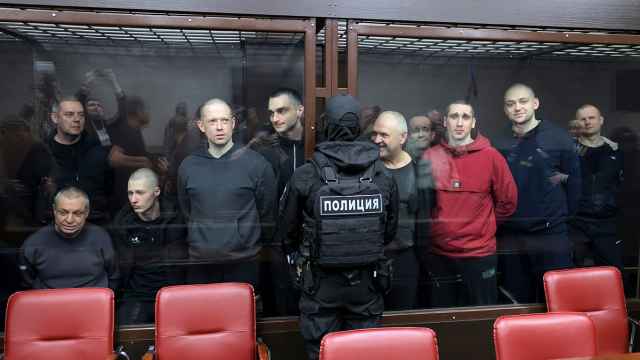Leading up to the 70th anniversary of the liberation of Auschwitz, the Nazis' largest concentration camp, organizers vowed that this year's event would focus on the survivors, not the politicians.
But as controversy runs rampant over President Vladimir Putin's anticipated absence from the ceremony, it's shaping up to be anything but apolitical.
Poland has displayed a knack for canny diplomatic dealings, at once ensuring that Putin was officially welcome at the event, while also creating an atmosphere he would be tempted to avoid.
In the aftermath of the downing of Malaysia Airlines Flight 17 over Ukraine's restive east in July, the Polish government decided against issuing formal invitations, as an official invitation to Putin would have proven unpopular among voters, Reuters reported. The fallout from such a move could have proven particularly painful at the moment, with Poland slated to hold presidential and parliamentary elections later this year.
On previous occasions, Poland's president had issued a formal invitation to Russian leaders.
Five years ago, Poland's then-president Lech Kaczynski sent a letter inviting Russia's president at the time, Dmitry Medvedev, to the 65th anniversary of the liberation of Auschwitz. Kaczynski invited Medvedev to commemorate the Soviet citizens who died in the camp and the Red Army soldiers who spearheaded its liberation, Polish Gazeta Wyborcza reported at the time.
Last year, the Auschwitz-Birkenau State Museum — which is co-organizing the 70th anniversary event with the International Auschwitz Council — announced that the upcoming anniversary would be devoid of politics, concentrating instead on the memories of survivors.
Rather than sending out formal invitations, the organizers asked the embassies of European Union countries and countries that donate funds to the site who they planned to send to the event. The notice specifically mentioned that the relevant states could be represented by anyone the given country deemed appropriate.
"Any representative of the Russian Federation who will confirm their participation in the celebrations will be received on par with the representatives of other states," the Polish Ambassador to Moscow, Katarzyna Pelczynska-Nalecz, told The Moscow Times.
Foreign Minister Sergei Lavrov acknowledged during his annual news conference Wednesday that the anniversary event's organizers had, in fact, sent a notification to the Russian Embassy in Warsaw.
"The letter said: 'You can come if you want. If you do want to, tell us who is going to show up.' You don't even have to respond to this type of invitation," Lavrov said with apparent disregard.
In the view of Russian officials, an invitation of this sort is inadequate to reach the highest levels of power. Thus, Russia opted to send Kremlin Chief of Staff Sergei Ivanov to the event instead of Putin, according to Reuters.
The Moscow Times has sent an official request for comment to Poland's foreign ministry. It remained unanswered by the time of publication.
Czech Turn
Things weren't so diplomatically sticky in preparations for all large-scale memorial events. Czech President Milos Zeman formally invited Putin to come join a parallel commemoration in Prague, called "Let My People Live."
The Czech authorities have sent formal invitations to other foreign leaders in addition to Putin, but only Bulgarian President Rosen Plevneliev has confirmed his attendance so far. Czech television station CT24 has reported that Putin will not be in attendance, but that Russia will be presented by Deputy Speaker of the Federation Council Ilias Umakhanov.
Lack of Platform
The ongoing crisis in Ukraine has all but decimated Russia's relations with the West. Large commemorative events provide an increasingly fleeting chance for both sides to save face.
Since Russia annexed the Crimean Peninsula in March, in the aftermath of which armed conflict took hold in eastern Ukraine, Putin has made very few official visits to Western and Western-leaning countries: to meet with Austrian President Heinz Fischer in June, to convene with European and Asian leaders at the ASEM Summit in Italy in October, and to the G20 in Australia.
During a visit to France in June for the 70th anniversary of the Battle of Normandy, Putin came face-to-face with two leaders with whom relations had been particularly tough at that point: U.S. President Barack Obama and Ukraine's then newly elected President Petro Poroshenko.
The meeting in France established a new format for future talks between Russia, Ukraine, France and Germany on Ukraine. Foreign Minister Sergei Lavrov met in a similar format with his counterparts in Berlin on Wednesday.
Further Controversy
To add insult to injury amid efforts to keep the 70th anniversary apolitical, the history of the death camp's liberation has courted controversy this year.
For years, the history of Auschwitz's liberation was simple. Soviet forces — consisting of Russians, Ukrainians, Belarussians and others — liberated the camp on Jan. 27, a day that is now honored as International Holocaust Day.
But recently this history has been called into question by some foreign officials, sparking a new political controversy.
On Wednesday, Polish Foreign Minister Grzegorz Schetyna said in an interview with a Polish radio station that "the first Ukrainian front — the Ukrainians — opened the gates of the camp and liberated it."
Schetyna's remarks provoked a swift reaction from Russia's Foreign Ministry, which said in an official statement that individuals from throughout the former Soviet states "fought in the Red Army that liberated Auschwitz."
The gates of the Auschwitz main camp were opened by Soviet major Anatoly Shapiro, a Jewish officer born in the Poltava region of today's Ukraine. In September 2006, Shapiro, who led a Red Army battalion of about 500 men, was declared a Hero of Ukraine by then-president Viktor Yushchenko.
"I was very proud of being in the vanguard of the liberators, not so much because I was a Jew liberating the camp, but because we, the Red Army, liberated it," Shapiro told New York Daily News shortly before his death in 2005.
A Message from The Moscow Times:
Dear readers,
We are facing unprecedented challenges. Russia's Prosecutor General's Office has designated The Moscow Times as an "undesirable" organization, criminalizing our work and putting our staff at risk of prosecution. This follows our earlier unjust labeling as a "foreign agent."
These actions are direct attempts to silence independent journalism in Russia. The authorities claim our work "discredits the decisions of the Russian leadership." We see things differently: we strive to provide accurate, unbiased reporting on Russia.
We, the journalists of The Moscow Times, refuse to be silenced. But to continue our work, we need your help.
Your support, no matter how small, makes a world of difference. If you can, please support us monthly starting from just $2. It's quick to set up, and every contribution makes a significant impact.
By supporting The Moscow Times, you're defending open, independent journalism in the face of repression. Thank you for standing with us.
Remind me later.


